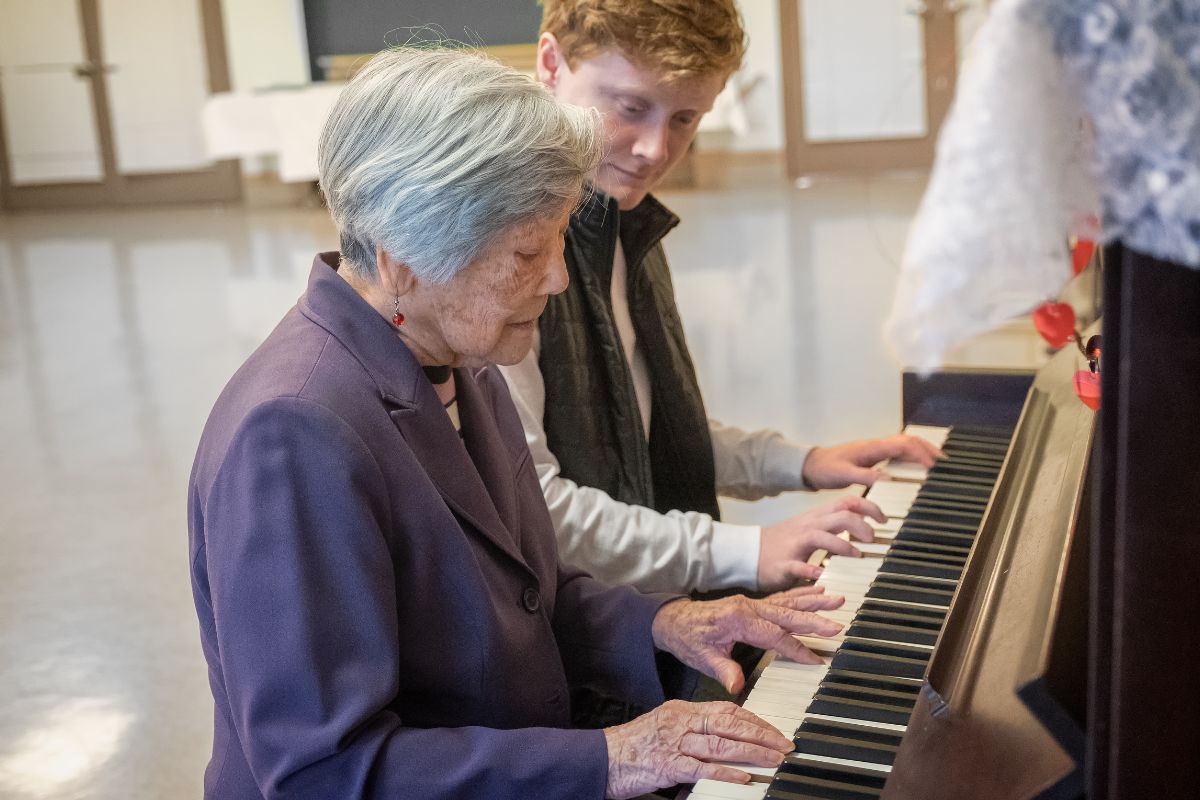
1. The Question Every Late‑Starter Asks
Type “can I learn piano at 30” into Google and you’ll find as many discouraging myths as success stories. The assumption is simple: children’s brains are plastic; adult brains are set in stone. Yet thousands of new players in their 30s, 40s and beyond prove the opposite every year—myself included on Piano Progress. Let’s unpack why age 30 is not a cutoff, but a perfectly viable starting gate.
2. What the Science Says About Adult Neuroplasticity
Modern neuroscience has dismantled the “critical‑period only” myth. Long‑term musical training—started at any age—reshapes auditory, motor and executive‑function circuits in the brain. Reviews of MRI studies show measurable structural changes in adult learners after months of practice (PMC, PMC).
More recently, a 2024 study linked piano playing in older adults to improved memory and problem‑solving skills compared to non‑musicians ScienceDaily. Neurologists even prescribe a challenging new instrument as daily “cognitive exercise” to guard against decline SELF. Conclusion: your 30‑year‑old (or 50‑year‑old) brain is still eager to re‑wire; it just needs consistent reps.
3. Advantages You Do Have at 30+
| Adult Superpower | Why It Helps Your Piano Journey |
|---|---|
| Self‑discipline & goal‑setting | You can craft practice schedules and stick to them. |
| Musical taste | Knowing what you love keeps motivation high. |
| Access to resources | Digital pianos, apps and online courses were scarce when today’s pros were kids. |
| Cross‑training | If you’ve played guitar or sung before, you already own rhythmic and ear skills. |
Add the proven cognitive boosts—better focus, stress reduction, delayed brain aging—and learning at 30 looks more like an ROI opportunity than a handicap.
4. How Long Will It Take?
Pianote survey of 1,000+ players found that more than half of intermediate pianists began as adults, and it took roughly 4–5 years of regular practice to reach that level Pianote. “Regular” doesn’t mean eight hours a day; 20–40 focused minutes can move the needle when done consistently.
Milestone roadmap (assuming ~30 min/day):
| Month | Focus | Typical Wins |
|---|---|---|
| 1 | Posture, basic note reading | Play both‑hand “Ode to Joy” slowly |
| 3 | Chord patterns, simple arpeggios | Accompany pop songs with lead sheets |
| 6 | Pedaling, dynamics | First recital‑ready piece at Grade 1–2 |
| 12 | Scales in four majors, sight‑reading drills | Debut a simplified classical favorite (e.g., “Fur Elise” Bagatelle section) |
| 24+ | Extended chords, moderate polyphony | Tackle early‑intermediate repertoire (Bach Minuets, Chopin Preludes) |
Remember, speed isn’t the metric—steady progress is.
5. A Six‑Point Action Plan for 30‑Something Beginners
- Choose the right instrument
A weighted‑key digital piano with headphone jack is enough. If possible, 88 keys and an action rated around 50–60 g mimic an acoustic feel. - Pick a structured method
Combine an app (Pianote, Flowkey) with a graded book series or teacher check‑ins. Apps give instant feedback; humans correct subtle technique errors. - Schedule micro‑practice
Two 15‑minute blocks often beat a single half‑hour when you have a day job and family. - Record yourself weekly
Upload to a private YouTube playlist or, like I do, a public progress channel. Video evidence fights the “I’m stuck” illusion and motivates others. - Learn repertoire you love, not just etudes
Alternating technical drills with movie themes or pop ballads keeps dopamine flowing. - Mind the ergonomics
Adults carry more wrist/shoulder tension. Warm‑ups, stretches and correct bench height prevent injury—crucial for learners over 30.
6. Common Pitfalls — and How to Dodge Them
| Pitfall | Quick Fix |
|---|---|
| Comparing to prodigies on Instagram | Compare only to yesterday‑you; follow adult‑beginner communities instead. |
| Skipping fundamentals | Invest early in slow metronome work; speed comes later. |
| Analysis paralysis over gear | A solid used digital piano beats waiting for the “perfect” acoustic. |
| Burnout from marathon sessions | Cap intense practice at 45 minutes; insert breaks and mindful listening exercises. |
7. Final Verdict: Yes, You Can Learn Piano at 30
Scientific evidence, real‑world surveys and countless adult success stories converge on one answer: your age is no barrier. What matters is a sustainable habit, purposeful practice and a community—virtual or local—that celebrates incremental wins.
So the next time someone asks you “can I learn piano at 30?”, tell them the research says “yes,” the statistics say “yes,” and your own journey on Piano Progress is living proof. Open the lid (or power button), set a timer for 30 minutes, and let today be Day 1 of the next chapter of your musical life.

Leave a Reply